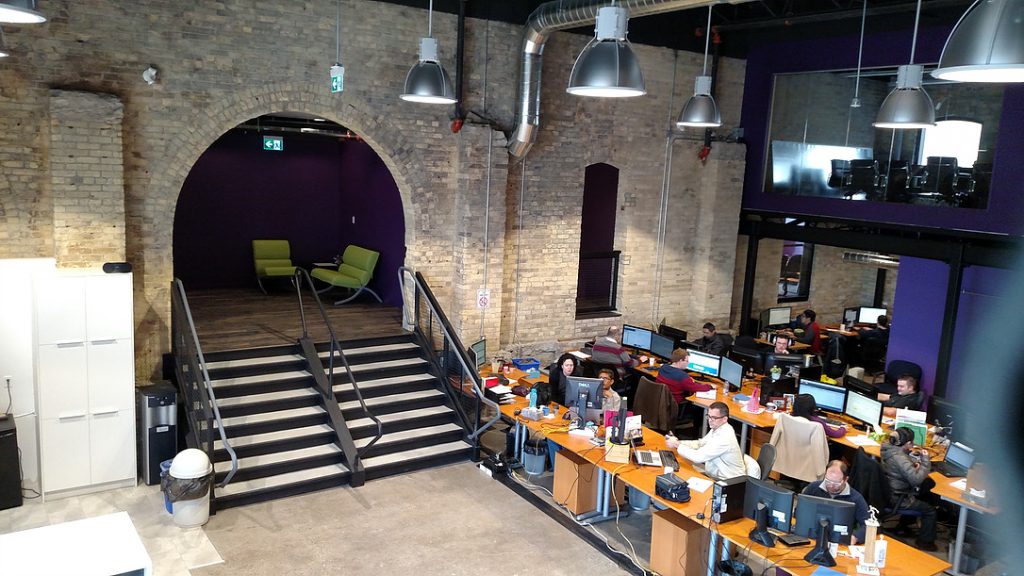London’s iCONECT provides a secure mini-Google for teams of lawyers to collaborate. As the founder of iCONECT, Ian Campbell, puts it, “the days of thumbing through a file box are gone.” This week, iCONECT announced a major partnership with Lockheed Martin that looks to transform healthcare by allowing legacy system data to be extracted and repurposed for current frameworks and applications.
Campbell is an Industrial Designer by education has an interesting backstory. At 19, while a student at Fanshawe College, he started his own advertising agency on a small scale learning the business. He then worked for a print company in Paris, Ontario, and an ad agency in Exeter, doing graphic design and getting smart about the advertising business. He landed back in London working for another ad agency before eventually buying it from the owner at 23. Campbell ran the company until he was 30, when it “died a quick and painful death,” he says because it couldn’t keep up with the pace of technology.
“The days of thumbing through a file box are gone.”
– Ian Campbell
I caught up with Campbell post-Lockheed announcement and asked how a guy who self-described his previous business closing due to technological change is now on the cutting edge of the e-discovery space in partnership with a major player like Lockheed Martin. Campbell said simply, “stupidity,” and then elaborated.
It was actually a series of unfortunate events. Campbell’s bookkeeper suffered a back injury and was unable to work; his videographer moved to BC with very little notice, and CorelDRAW came out and automated some of the value that the provided to clients. His typesetter became irrelevant. Despite digital media and technology being a hotbed for London’s tech scene, Campbell’s ability to see into the future would pay dividends in another space a few years later.
Campbell took on a sales role for a computer networking company but never stopped building, inventing, and tinkering. The pivot to discovery and compliance was born out of a trip to a legal technology show in New York nearly 20 years ago, as Campbell became the Canadian distributor of Concordance, which at that time was a document management system based out of California.
Despite impressive capabilities, most of the judges and lawyers that Campbell spoke to were more interested in “counting photocopy pages and templated forms” when he gave demos. Campbell saw more. One of his first customers with Concordance was the Red Cross. The way that they (and everyone at the time) utilized the software was to fly everyone into a central location and create a war room. The question that lingered after the case was settled was, “is there a way to get data from 18 locations?” Concordance had developed an API but didn’t see the business opportunity. Campbell did, and conscripted his brother, who after two weeks called and asked him to type in a specific IP address. Ian realized that he was “looking” at his brother’s computer and could search documents. He realized that his brother had “webified the software.”
This was the start of iCONECT, which today has 38 employees with offices in London, Boston, Dallas, Los Angeles, and Washington.

“We create software for legal teams to collaborate on centralized document collections,” said Campbell. “Lawyers don’t have to fly into a city and go to one room and look at each other and make notes. They do it virtually.” One of the major breaks for the company’s growth came in 2003, when the Enron case required hundreds of lawyers from almost 100 individual law firms access to 153 million pages of information via iCONECT. Since then, iCONECT has been used in major legal cases like the Da Vinci Code copyright infringement lawsuit, the BP Gulf of Mexico oil spill, and the NASA Columbia disaster in 2003.
“People underestimate the variety of digital mediums. The sheer amount of communication that exists outside of traditional messages.”
iCONECT’s relationship with Lockheed Martin is not new. It started at the height of the financial crisis in the US with the FDIC investigations. Lockheed was a client of iCONECT and pulled from the almost 19,000 branches of troubled banks (about 44 billion pages of information!). In the past decade, iCONECT and Lockheed Martin have migrated data from over 5,000 individual applications. Using iCONECT software today, Lockheed Martin securely hosts over 15 billion records and over 1.2 PB (petabytes) of migrated data.
The healthcare industry has been investing in information technology for decades but has been impeded by the prevalence of legacy applications, overriding security concerns, and general cost containment. The success of the previous Lockheed Martin and iCONECT work spawned conversations and a partnership. Healthcare is swimming in information contained in legacy DOS applications. Lockheed Martin works with the industry to move records and documents from legacy applications to a low cost, secure and scalable repositories, and the partnership with iCONECT allows for the ability to retire legacy applications. Once retired related software and hardware maintenance and support costs are eliminated.
“People underestimate the variety of digital mediums,” Campbell said. “The challenges are not boxes of files to OCR or email electronic data to be extracted now, but the sheer amount of communication that exists outside of traditional messages.” Campbell cites Mattel as an example of what many would assume is a low litigious risk company, but one that has been hit with lead paint and Bratz doll scandals.
If a picture is worth a thousand words, with the advent of big data and analytics there is simply no longer time to manually read information – visualizations are required. The velocity of data has proliferated to the point where companies need to be able to organize and review, pinpoint and focus with sub-second responses to queries against datasets. A pie chart is easier than reading ten pages of excel. iCONECT is invested in the space, is thriving with a home base in London, Ontario, and is looking into the future of collecting and harvesting of data from remote laptops and other diverse locations, as well as looking at the opportunity that multimedia offers as voice and video grows as a communication method.


